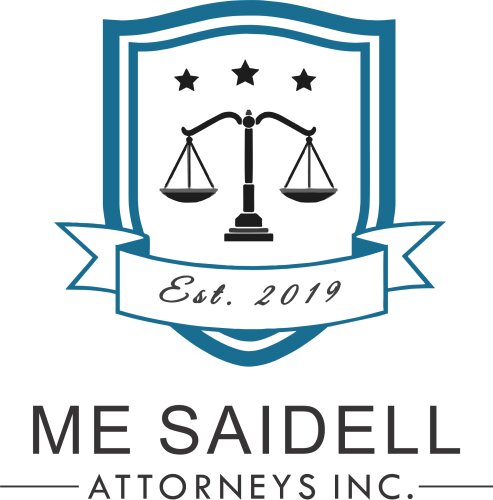Best Employer Lawyers in Johannesburg
Share your needs with us, get contacted by law firms.
Free. Takes 2 min.
List of the best lawyers in Johannesburg, South Africa
About Employer Law in Johannesburg, South Africa
Employer law in Johannesburg, South Africa, is part of the broader field of labor law and is governed by various statutes and regulations designed to balance the rights and responsibilities of employers and employees. The legal framework includes laws pertaining to employment contracts, workplace safety, discrimination, dismissals, and international labor standards. Johannesburg, as a major economic hub, sees a diverse array of employment-related legal issues and enjoys a well-developed legal infrastructure to address these matters.
Why You May Need a Lawyer
There are several reasons why individuals or companies in Johannesburg may require legal assistance in the field of employer law. Common situations include:
- Drafting, reviewing, or negotiating employment contracts.
- Cases of wrongful dismissal or unfair labor practices.
- Understanding rights concerning employee benefits and remuneration.
- Addressing workplace discrimination or harassment issues.
- Ensuring compliance with occupational health and safety standards.
- Guidance on redundancy and retrenchment processes.
- Navigating disputes and disciplinary procedures.
- Handling immigration and work permits for foreign employees.
Local Laws Overview
Johannesburg follows national labor laws as set forth by South Africa's legislative framework. Key pieces of legislation include:
- Basic Conditions of Employment Act: Establishes minimum standards for employment terms such as working hours, leave, and termination conditions.
- Labour Relations Act: Governs collective bargaining, labor disputes, strikes, and lockouts, while promoting fair labor practices.
- Employment Equity Act: Aims to eliminate workplace discrimination and promote equal opportunities across race, gender, and disability.
- Occupational Health and Safety Act: Ensures safe and healthy work environments by setting safety standards.
Frequently Asked Questions
What are my rights when dismissed from a job?
In South Africa, dismissals must be substantively and procedurally fair, as outlined by the Labour Relations Act. Employees can approach the CCMA if they feel a dismissal was unfair.
How do I report an employer for unfair labor practices?
You can report unfair labor practices to the Commission for Conciliation, Mediation, and Arbitration (CCMA) or seek assistance from a labor lawyer.
What should I include in an employment contract?
An employment contract should include job title, duties, remuneration, working hours, leave entitlements, and termination conditions among others.
What protections do I have against workplace discrimination?
The Employment Equity Act protects employees from discrimination based on race, gender, ethnicity, and other factors. Complaints can be filed with the South African Human Rights Commission or the CCMA.
Can a foreigner work in South Africa without a work permit?
No, foreign nationals must have an appropriate work permit or visa to be legally employed in South Africa.
What constitutes unfair dismissal?
Unfair dismissal can occur if an employee is fired without a fair reason or without following proper procedures. Examples include discrimination-based dismissals or dismissals without prior warnings for misconduct.
How can employees be dismissed legally?
Dismissal must follow a fair process, which includes conducting a fair hearing and having a valid, justifiable reason for termination, such as misconduct or operational requirements.
What recourse is available for employees subjected to harassment?
Employees can report harassment to their employer or escalate to the CCMA or labor court if the situation is not resolved internally.
Is it mandatory for employers to provide written contracts?
Yes, under the Basic Conditions of Employment Act, employers must provide employees with written particulars of their employment.
How often should salaries be paid to employees?
According to the Basic Conditions of Employment Act, employers must pay salaries at intervals agreed upon in the employment contract, typically monthly or bi-weekly.
Additional Resources
For more information and assistance, consider reaching out to the following organizations:
- Department of Employment and Labour
- Commission for Conciliation, Mediation, and Arbitration (CCMA)
- South African Human Rights Commission
- Legal Aid South Africa
- Law Society of South Africa
Next Steps
If you need legal assistance with employer-related issues in Johannesburg, consider the following steps:
- Consult a qualified labor attorney who specializes in local employer law.
- Gather all relevant documents and evidence pertaining to your case.
- Schedule a consultation to discuss your situation and potential legal remedies.
- Consider mediation or arbitration for dispute resolution if possible.
- File a complaint with the appropriate legal body if necessary.
Securing experienced legal counsel can help protect your rights and ensure compliance with employment laws and regulations in Johannesburg.
Lawzana helps you find the best lawyers and law firms in Johannesburg through a curated and pre-screened list of qualified legal professionals. Our platform offers rankings and detailed profiles of attorneys and law firms, allowing you to compare based on practice areas, including Employer, experience, and client feedback.
Each profile includes a description of the firm's areas of practice, client reviews, team members and partners, year of establishment, spoken languages, office locations, contact information, social media presence, and any published articles or resources. Most firms on our platform speak English and are experienced in both local and international legal matters.
Get a quote from top-rated law firms in Johannesburg, South Africa — quickly, securely, and without unnecessary hassle.
Disclaimer:
The information provided on this page is for general informational purposes only and does not constitute legal advice. While we strive to ensure the accuracy and relevance of the content, legal information may change over time, and interpretations of the law can vary. You should always consult with a qualified legal professional for advice specific to your situation.
We disclaim all liability for actions taken or not taken based on the content of this page. If you believe any information is incorrect or outdated, please contact us, and we will review and update it where appropriate.
















